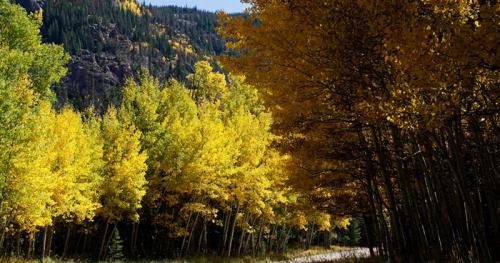Pending Forest Bills

Roosevelt National Forest
USDAgov-Flickr
Right now there are a number of bills before Congress that will protect or devastate our last remaining forests.
We can find solutions that protect our forests and the livelihoods of the people who depend on them by working with Congress. The pending national forest bills are a top priority for The Wilderness Society, especially these pieces of legislation that we strongly support:.
Roadless Bill
Still pending in Congress, the Roadless Area Conservation Act (S. 1891, H.R. 3465) would make the landmark “Roadless Rule” an act of Congress. President Clinton created the Roadless Rule in 2001 and it protected America’s last remaining forests without roads.
Secure Rural Schools
This pending national forest bill (S. 1692, H.R. 3599) provides funding for school improvement programs and stewardship projects in our national forests. It is the definition of people and land living and working together side-by-side.
Other Legislation that we support
Forest Service Appropriations Act
Every year Congress decides how much money the Forest Service can spend to manage the national forests. Among many other things, appropriations levels determine how much money is allocated to:
- Wildlife and water protection
- Wilderness management
- Recreational trails and campground maintenance
- Land acquisition
See also:
2013 legislative funding priorities
Current Legislation That We Oppose
Federal Forests County Revenue, Schools, and Jobs Act (H.R.4019)
This bill seeks to turn back the clock on national forest management by imposing mandatory timber and revenue-generating targets on the Forest Service. It would also exempt logging activities from key environmental laws.
See also:
Analysis of Federal Forests County Revenue, Schools, and Jobs Act of 2012
Wilderness and Roadless Area Release Act (S. 1087, H.R.1581)
Opponents of roadless area protection are trying to repeal the Forest Service’s Roadless Area Conservation Rule. The bill (also known as the Great Outdoors Giveaway) would throw open the doors to destructive logging and road building on 50 million acres of America’s finest public forests and undisturbed wild lands.
See also:
Anti-Environmental Appropriations Riders
One of the biggest problems we face each year is the last-minute addition of anti-environmental “riders” to the Forest Service appropriations act or other laws. Whether a pet peeve of a certain congressman or a behind-the-scenes assault by industry lobbyists, these riders can have devastating impacts on the national forests if they are not exposed to public scrutiny and stopped in their tracks.
Bighorn Sheep Rider
This rider derails efforts to recover declining populations of Bighorn Sheep, one of the nation’s most iconic wildlife species.
See also:
Letter to Congress to protect bighorn
Off-Road Vehicle Management
Several recent proposed riders would undo or fundamentally undermine the multi-year public process used to develop management plans for off-road vehicles on national forests.
See also:
Sealaska (S. 730 and H.R. 1408)
This bill would give the Sealaska Corporation ownership of some of the last remaining old growth stands in the Tongass National Forest, as well as numerous smaller parcels including many of the very best sites at the heads of bays or mouths of salmon streams. These lands, currently open to the American public and relied upon by a number of local tourism and fishing businesses, would be privatized and used for logging and commercial development.
See also:
Fact sheet on Sealaska bill, Sealaksa Bill: A Step Backward
Anti-Wilderness Provisions of the Sportsmen’s Heritage Act (H.R. 4089) and Recreational Fishing and Hunting Heritage and Opportunities Act (H.R. 2834 / S. 2066)
Dropped into otherwise unobjectionable bills promoting hunting and fishing, a nasty anti-wilderness provision would open up congressionally designated Wilderness Areas to motorized access and to commodity extraction activities.
See also:
Statement for the record on H.R. 2834
Helpful links
- Land and Water Conservation Fund (LWCF) coalition:
http://lwcfcoalition.org
